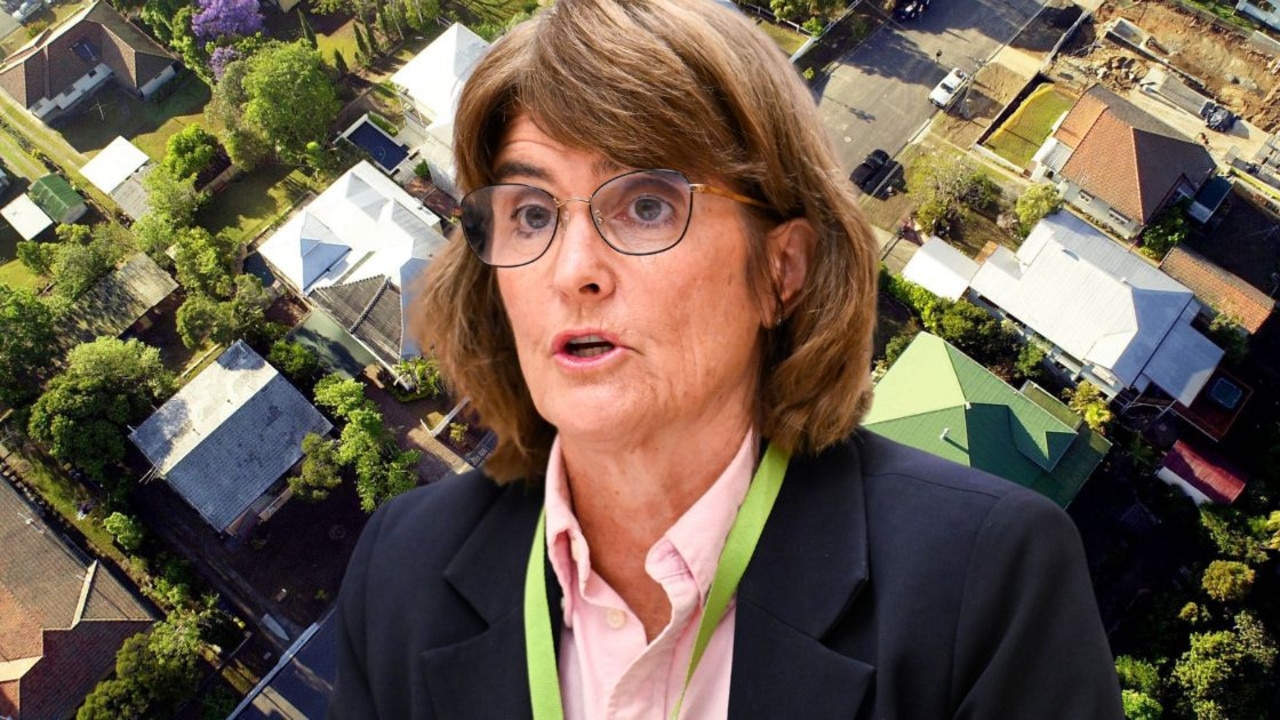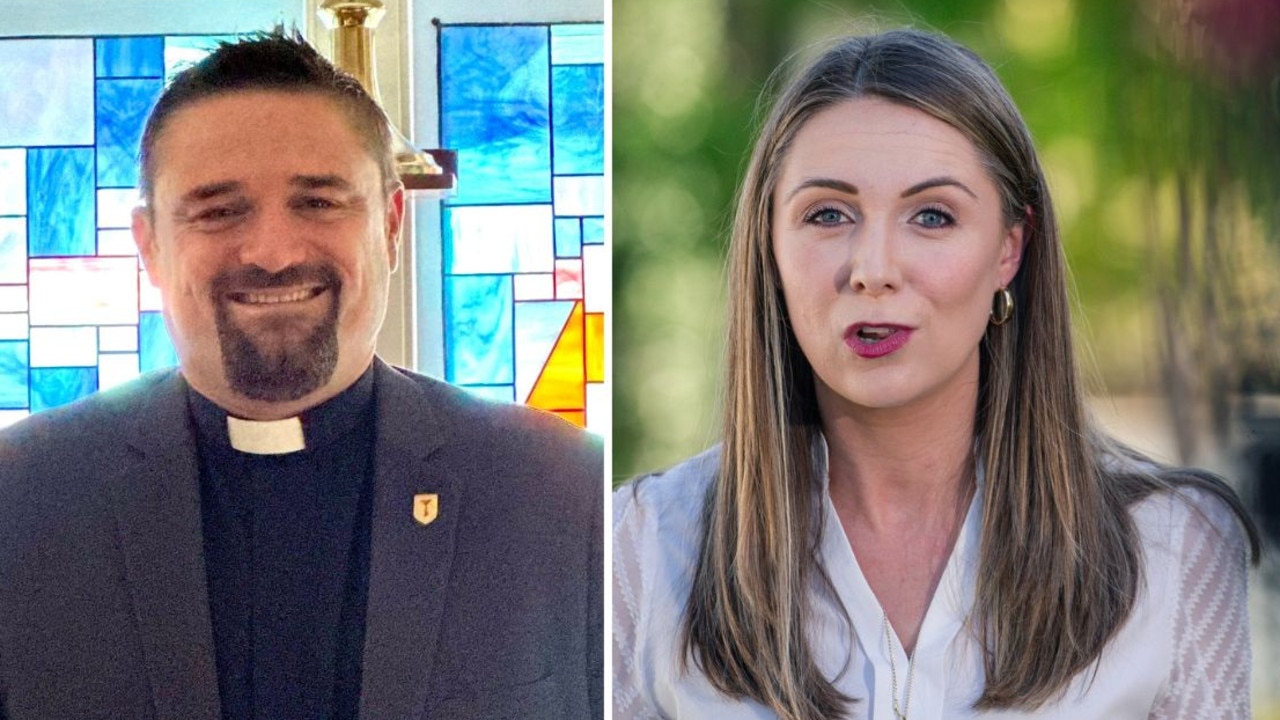Queensland’s highest ranking female cop has cracked the QPS glass ceiling
TRACY Linford is setting the standard for female officers, moving into the upper echelons of the Queensland Police Service, writes Kate Kyriacou.
CM Insight
Don't miss out on the headlines from CM Insight. Followed categories will be added to My News.
THERE are moments in every police officer’s career that can’t be forgotten, and so it goes with Queensland’s highest ranking female cop, Tracy Linford.
There was the case she couldn’t solve. A woman who had been befriending elderly men and taking their money. An exercise in frustration. The knowledge of an injustice but an inability to prove it to the standard required in a court of law.
Then there was the case she thought she’d solved. A little boy, his feet terribly burned.
She’d measured the burns, parallel lines spaced the exact same width as a bar heater in the toddler’s home.
A caregiver was charged and fronted court. He claimed he’d fallen while carrying the little boy. It was not a story he’d given before. But a magistrate decided there was not enough evidence to proceed. It was the only case she ever lost.

Deputy Commissioner Tracy Linford is one of two women who make up the nearly 20-strong Queensland Police Service senior executive.
In her decades-long career – much of it spent working as a detective – she has investigated everything from burglaries to terrorism.
“I love it. I’ve stuck around for 34 years and I’ve tried it in two different organisations. So I’m a career police woman through and through. And I still love coming to work every single day,” she says.
“I’ve had periods in my time when I’ve been stalked, harassed or had death threats made against me. You learn from those things.”
Linford’s career in policing began when she was 19 and was ironically inspired by the one thing detectives find so frustrating – a television show.
It wasn’t a crime drama, at least – but a documentary on forensic policing methods.
A teenage Linford was fascinated by the idea that insects could be used to determine how long someone had been dead.
She decided a career in forensics was for her.
“So that was my main impetus for joining and I joined thinking I would head that way,” Linford says.
“But after I got my first offender, I got the taste for being a detective and most of my career has been in the detective stream.”

SHE remembers her first offender. A drunk driver. Her first offender outside traffic was a burglar. The homeowners weren’t there when the man broke in.
It was another burglar who would phone Linford at work one day, threatening to kill her. She was a detective working in Victoria’s Mornington Peninsula.
“I remember once, sitting at my office. I was a detective at a place called Hastings. And I got a phone call. It was a death threat, saying, ‘Is that Tracy Linford?’ And I said, ‘Yes, it is’, and they said, ‘Well, I’m coming to kill you’.
“And so, luckily we’ve got phone-tracing abilities. So I was able to organise a phone trace and it went back to his home and we sent round the police to pick him up.
“I’d arrested him for a big number of burglaries. And that resulted in him getting a prison sentence and his wife left him, so he blamed me for that.”
She worked her way up through the ranks and as she did, policing for women evolved. She’d once been asked to make the cups of tea. Or look after the children at a crime scene.
“Quite often I would find, particularly being a detective – and I might be the most senior detective or investigator going to a crime scene – I’d have a junior or someone I was mentoring come along with me, and you’d find the likes of the media would go straight to the male,” she says.
“They just couldn’t get it in their head that a female might have been leading the charge and would actually be in charge of that particular operation.”
SHE moved through roles including analyst, law instructor, intelligence unit manager, project manager, crime command inspector, detective training school manager, district manager and regional commander.
When Melbourne was in the throes of the gangland murders, Linford was part of the team that worked to stop the bloodshed.
“There were more than 20 (murders) over a very short period of time and they were getting a lot of attention, a lot of pressure from the public, a lot of pressure from the government, saying … how is this able to happen?
“And I think the one that really scared the community was when there were some offenders shot in a car at a kids’ football match. And it was horrific.”
Linford and the team worked with the Boston Consulting Group, where they looked at bringing together a diverse skill set to investigate the murders. Accountants. Lawyers. Specialists with unique skills.
“Because police don’t necessarily have all the right skills. By having a multidisciplinary team … your opportunities to solve crime and really dig in and find out what’s going on are really enhanced,” Linford says.

SHE was promoted to Assistant Commissioner, a role putting her in charge of covert operations and terrorism.
“The undercover units, they’re amazing, amazing officers that do that kind of work, no question about it.
“They have to completely devoid themselves of the life they live in real time and become somebody else. The jobs that they have solved are really high profile, really complex operations, but they’re not often recognised for it.”
In 2015, Linford made the move to Queensland to take up an Assistant Commissioner role. She took on the same portfolios she’d left behind in Victoria.
“One of the things I have found since I’ve come to Queensland is I’ve kind of taken on this new role of a knowledge exchange manager. So there are things I’ve seen in Queensland where I’ve thought, oh, Victoria would love this.
“And likewise, there were some things in Victoria where I thought, oh, Queensland would love that.”
Then, in 2017, she became Queensland’s highest ranking female officer when she was promoted to the rank of Deputy Commissioner.
The only other female member of the senior executive is another Victorian recruit, Assistant Commissioner Sharon Cowden, who took up her post running the Ethical Standards Command earlier this year.
Linford, whose role now involves overseeing strategy, policy and performance, says she doesn’t see the Commissioner’s role in her future.
“I’ve only just recently come into the Deputy’s role and I really see myself planted in this role for quite some time.
“I love doing it and I’m very appreciative that I got the opportunity to get into it.”
kate.kyriacou@news.com.au


